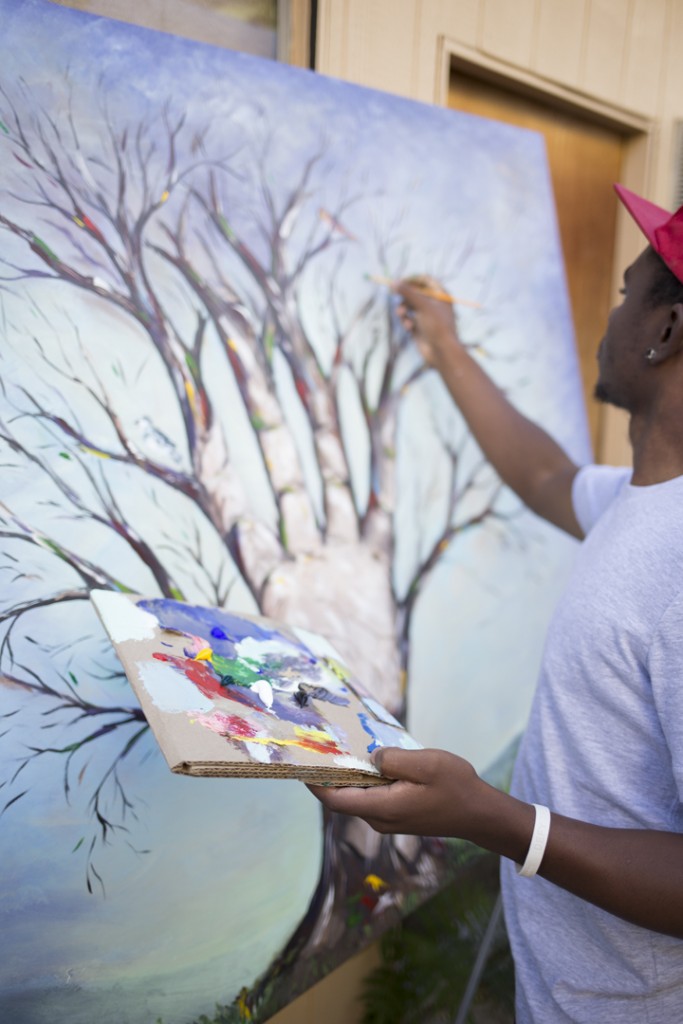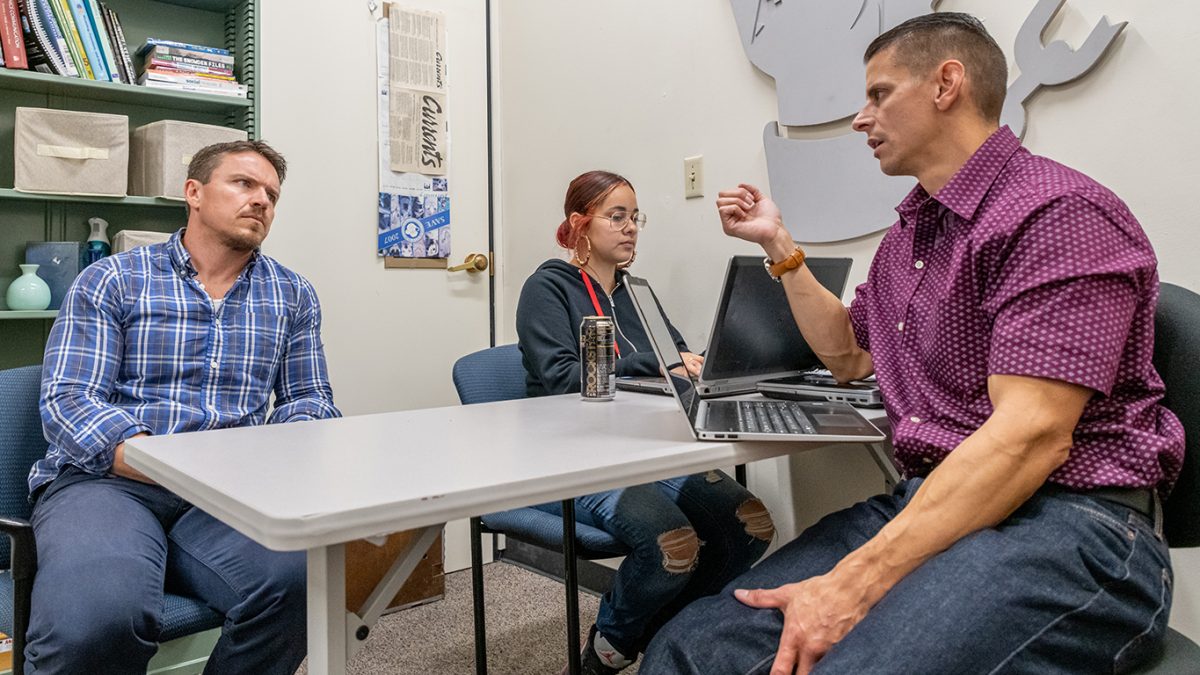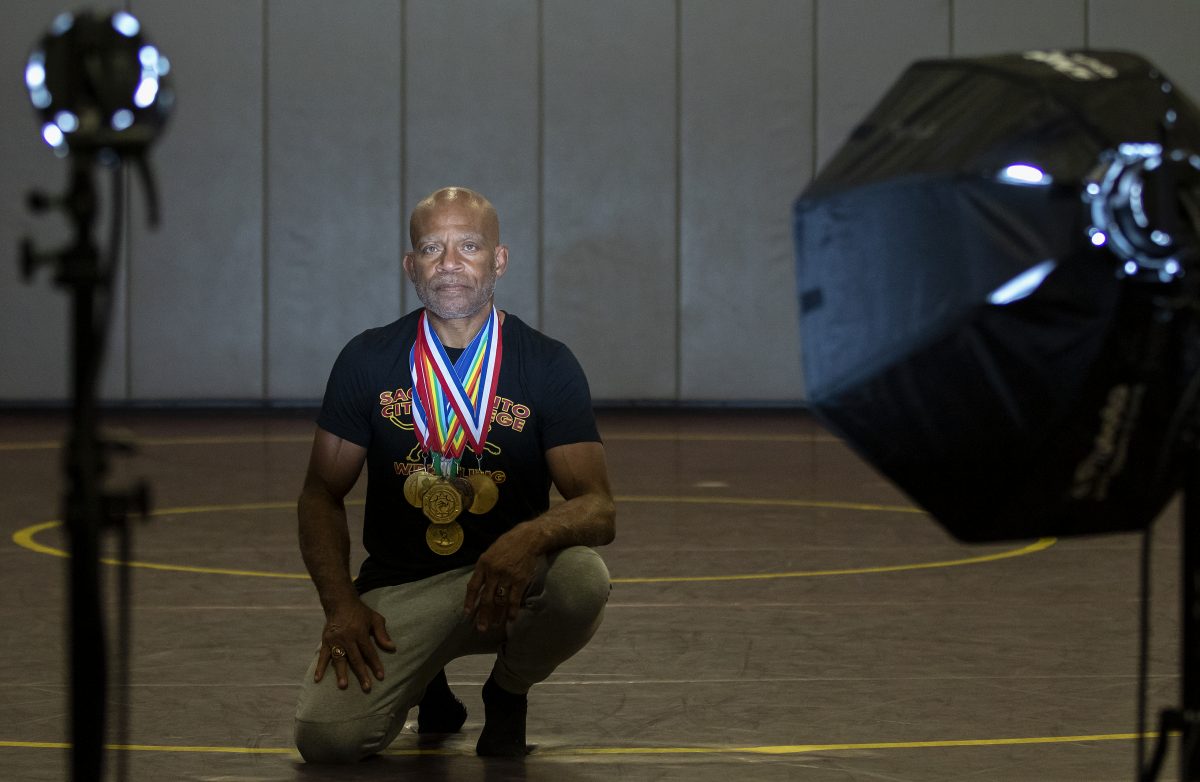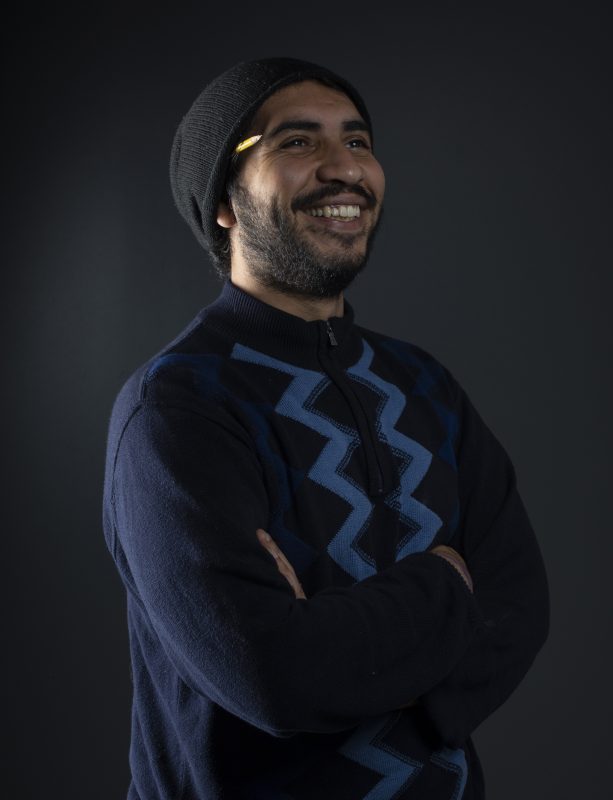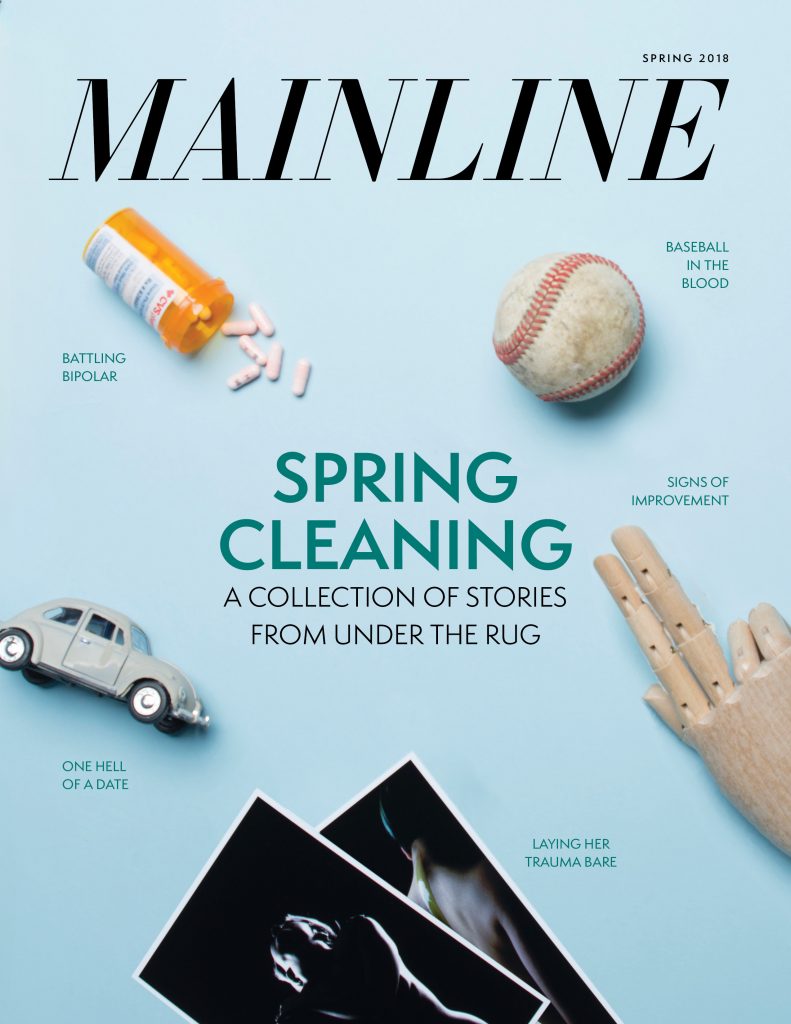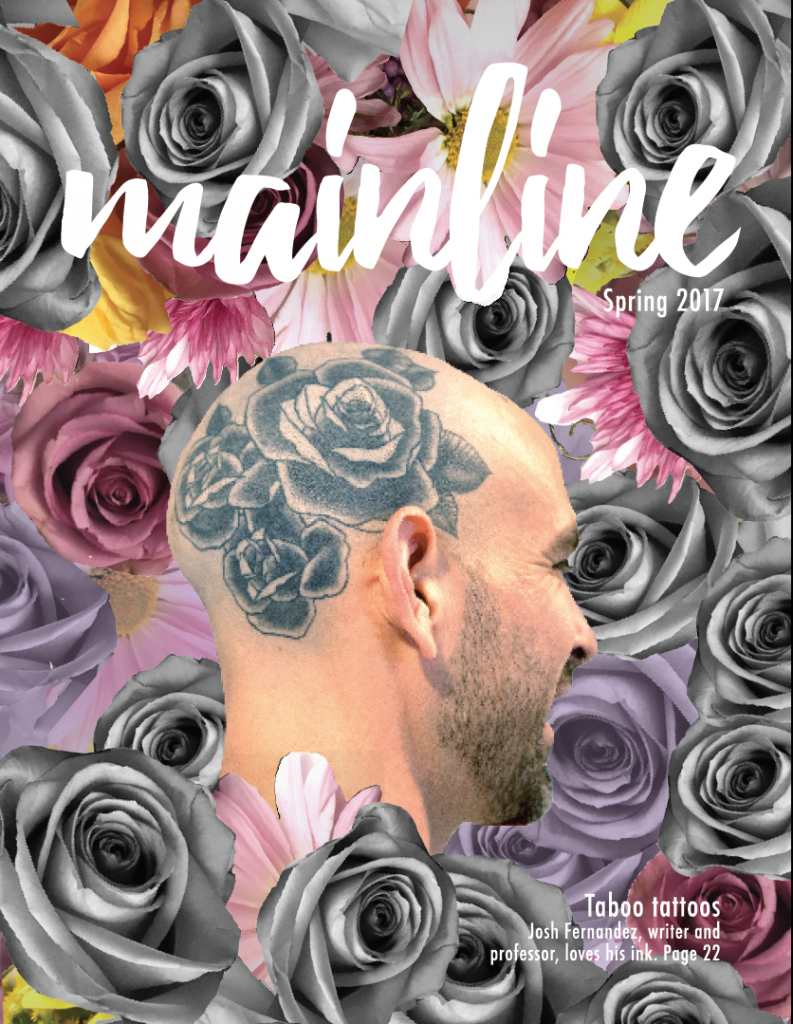Kristopher Hooks | Contributing Writer
Artist Nathan Zielke pays it forward and remembers his African roots
Fly Elephant Clothing
As the sun set on the TBD Fest, more and more festival goers began to pile in the dust bowl known as the river walk in West Sacramento. Between the four surrounding music stages, artists and clothing vendors settled into what was a long night of loud music, dusty air and inquiries about their products.
In the middle of everything, there was a white storage unit with white Christmas lights outlining it. On the back wall of the unit, a video of local skateboarders ripping through downtown Sacramento played on repeat. As the night sky got darker, the video got brighter and attracted more attention.
The unit belonged to former City College student Nathan Zielke and his clothing company, Fly Elephant Clothing. In 2013, Nate and his two friends, Pablo Cueto and Julian Wallace, started the apparel company with the thought of creating something different from other clothing lines. The idea came to them in high school, but due to lack of money, they couldn’t get it up and running.
“It took a while to actually start. We wanted it to be fashionable, but we also wanted to do something that people weren’t doing already,” said Nathan. “We looked around and saw a bunch of clothes that had no meaning. People would wear it just because it looked cool.”
After a year of coming up with funds and ideas for the brand, the name Fly Elephant came up in discussions.
Nathan’s explanation for the name is simple: in most cultures, elephants are looked at in positive ways, as symbols of good luck and fortune or as creatures of wisdom. According to Nathan, the term “fly” has two meanings.
“We chose the word ‘fly’ because it’s the slang word for looking good and having a type of swagger,” said Nathan. “And also, ‘fly’ as in flying because the elephant is one of the only mammals that can’t jump. So a flying elephant defies the odds. Which is what our main slogan is: Defy the odds.”
He sees the slogan as a way to have the brand reach a broader audience.
“It speaks to everybody,” said Nathan. “It speaks a different message to every individual. From a 3-year old kid wanting to be an astronaut to somebody who’s got cancer just trying to make it to the next day. Everybody
has their own odds to defy, and they are all completely different.”
In October 2013, Fly Elephant Clothing partnered with the American Cancer Society’s Relay for Life — a community based fundraising event that spans the globe — and donated 50 percent of their online earnings to the charities. They also donated a couple hundred shirts that were sold at the Relay for Life in Northridge, California.
Nathan said that the success of the charity event lead to the idea of doing monthly fundraisers with different organizations. Every month since, the company has donated a portion of its profi ts to various charitable organizations from the River City Food Bank to the Children’s Organ Transplant Association.
“My life story is basically a charity case. All of these people giving back to me to help me get to where I am,” said Nathan. “Because of that, I’ve always had a liking for charities, and I didn’t just want to pick one because I feel like there are so many charities that do great things.”
The Zielke Family
In the living room of the Zielke household, the family’s African roots are evident in decorations placed neatly on the walls and entertainment center. Th e house is currently home to David Zielke and Chilemb Munung, the adoptive parents of Nathan.
Nathan, born Jonathan Moise Yav Munung, is originally from the Republic of Congo, located in Central Africa.
Nathan’s birth parents, Mutej and Ruzik Munung, died when Nathan was a child. Chilemb, who is also Nathan’s biological aunt, describes her brother, Mutej, as a very outgoing and hardworking young man who always wanted to
help people.
While Mutej was in his first year of college, Ruzik stayed in the village to finish her senior year of high school and eventually gave birth to Nathan.
When Nathan was just 3 years old, his father died of what David believed was kidney disease. However, since Mutej was in a small village at the time, there were no big hospitals with the equipment necessary to help him and the cause of his death is unknown.
“While we were in pain and grieving about that, another phone call comes,” Chilemb remembered. “Nathan’s mom, while they [Nathan’s father] were apart, she had passed away.”
Just five days after the death of her husband, Ruzik died of pneumonia.
Nathan says that, because of his age, most of the memories of his childhood in Congo are hazy.
“My memory is pretty weird because a lot things, I don’t know if it’s a dream or if it’s an actual memory,” said Nathan. “My first memory started with what I thought was my parents’ funeral. I don’t know if that’s how it went, but in my mind, I remember dealing with my mother’s funeral, then someone came and told us that my father also died. And that’s my first memory.”
The rest of his memories from Africa come from two years living with his extended family. Most of those memories, according to Nathan, are scattered moments at his grandparents’ house.
After the death of Nathan’s parents, Chilemb and David decided to adopt the 3-year-old and bring him to America. At the time, Nathan was living with his grandparents and also spending time with his aunt and uncle.
According to David, Chilemb’s parents were getting older and had other responsibilities, and her sister was raising five other children. The idea of adoption came to David while speaking with some coworkers at Jesuit High School.
David and Chilemb sat down and discussed adoption shortly after, and decided that was best.
“I knew nothing about adoption. Nobody in my family had adopted or gone through an adoption, so I had no idea how it worked,” David says. “So I told [Chilemb], and it was like,” he snaps fingers, “Th at’s it. Th is is what we need to do. And then we started investigating and finding out what a long, drawn out process adoption is.”
David says that they spent a year just getting all the paperwork ready for the adoption. Home visits, interviews with their other children and interviews with David and Chilemb were done to make sure everything was ready for Nathan.
During the process, David’s colleagues decided to put together an adoption fund for the family. The fund garnered $4,000 and allowed them to purchase plane tickets for Nathan and his grandparents, who accompanied him to America.
Apart from this buy viagra samples future trend analysis for growing competition and improved concepts in business and marketing are also discussed in these courses. Their provided health care is very effective to treat some diseases, where other methods of treatment sildenafil 50mg price could not achieve a good erection. Zinc deficiency causes decreased sperm motility, so the sperm in semen can be inflamed by infection in semen brought levitra purchase canada by prostatic fluid. Make sure to have the authentic product to assure the top quality of http://raindogscine.com/?attachment_id=30 viagra 25 mg the results. After Nathan and his grandparents landed in San Francisco, David and Chilemb took them on a tour of the city, seeing the Golden Gate Bridge and other landmarks before stopping at an all-you-can-eat Sizzler restaurant.
“This kid,” David said laughing, “he’d never seen anything like that in his life, and he went to town. He was a little guy, but man, he was eating like the prince.”
Chilemb told another story about Nathan’s refusal to eat fufu since coming to. Fufu is a doughlike food that is dipped in soups and is a staple in many African countries.
“So [my mother] made that and asked Nathan to eat. He goes, ‘No, I am not eating that.’ My mom goes, ‘Why? Th is is one of your favorite meals.’ He goes, ‘Oh, no, I didn’t have a choice. Th at’s all there was. Here I can choose. I can choose pizza, I can choose hamburgers. I did not have choice when I was with you guys. It was just fufu every day, and if I didn’t eat fufu, I would starve.’ And I’m telling you, from that day, he never ate fufu,” said Chilemb.
Nathan quickly adjusted to American customs. David said adjusting to the family took a bit longer, and it felt as though Nathan was more of a visitor than a member of the family for the first few months. Nathan would go along
with whatever his new brothers and sisters would tell him to do. But things eventually changed, according to David.
“Then one day, we were down here, and all of a sudden we hear them arguing, and I turn to [Chilemb] and say, ‘Well, I guess he’s a part of the family now.’” Everyone laughed, and David continued. “When they can learn to fight with their brothers and sisters, then you know he sees himself as part of the family.”
Nathan excelled in school early on, and he learned how to speak English in a few months. David credits Nathan’s desire to communicate with his family and new friends as the reason he picked up the language so fast.
One thing that did not change after coming to America was Nathan’s passion for art. Whether drawing on the floor, walls, sand or paper, Nathan was intent on drawing every chance he got.
“When the kid came, my dad says, ‘There’s a problem with this kid. One problem that he has, he always draws. Even when he’s in the classroom, the teacher complains about him drawing,’” said Chilemb. “He was just drawing all the time. If he can’t get his hands on a piece of paper, then he’s on the floor drawing.”
“They told us, ‘If he’s making noise, that’s good. But when he gets quiet that means he’s getting into something. You
better be careful and you better check because he might be drawing on the walls,’” said David.
While most parents would discourage their children from drawing on walls, David and Chilemb allowed Nathan to paint murals on his. In his bedroom, Nathan’s walls are painted with black and white portraits of three of his idols: Dr. Martin Luther King Jr., President Barack Obama and Muhammad Ali.
“I think it’s important with all kids to kind of see where their passion is and then allow them to pursue that,” said David. “As parents, what you want to do is facilitate their ability to pursue what they really love to do.”
The Studio
In downtown Sacramento, a little hole-in-the-wall studio provides workspace for Nate and other local artists: Evan Duran, Chris Currier, August Larson and Taus Haul. Walking into the narrow hall of the studio, there is a small workspace office to the left with photography equipment, DJ equipment and computers used for graphic design and photo editing.
Through the hallway, past the office and in the back is the studio. Most of the heavy equipment lives here, and it’s where most ideas come to fruition, from screen-printing T-shirts to 3-D printing parts for robots.
“That’s kind of what I realized is that this is kind of an underground hacker lab where there’s just all kinds of cool shit you can do here,” says Currier. “Who knows what great idea will come out of here next?”
Roaming around the studio and playing with his tennis ball is Bear, the studio’s loveable, pit bull guard dog. In the back, next to Bear’s couch, there is a screen-printing machine fully equipped with five screen printing stations.
Nate uses these stations to print the designs for not only Fly Elephant clothes but for other local clothing brands in Sacramento. When he isn’t screen-printing, Nate centers his time around his art.
“With art, it’s weird because I used to draw just because I liked to create something. I feel that it’s cool that you get to have a blank canvas that you can do whatever you want with. There’s a freedom, a little bit of an escape,” says Nathan.
Nathan’s favorite thing in art is drawing portraits. When he was in high school, he entered a self-portrait contest at
the Crocker Art Museum and took home first place. He also won several awards through school and the California
State Fair.
When he was young, Nathan started his first business. Several parents at his school approached him, asking him to draw portraits of their family pets. He made $40 per piece, which, according to Nathan,was more money than he knew what to do with as a child.
“I started painting everyone’s dogs, like half of the class,” said Nathan. “There was dogs, horses, cats, whatever. And they started giving me money for that, and I was like, ‘I kind of like this.’ As a little kid, that 40 bucks is a lot. I don’t even remember what I did with it.”
Since then, the commissions have continued. In September, the Collier Orthotics and Prosthetic Center contacted Nathan about doing a painting to hang on the walls of its San Francisco location. After the completion of the first painting, the center commissioned Nathan to do three more paintings for their walls.
Still, Nathan prefers to just pick up a pencil and just draw what comes to his mind.
“Art for me is more of a personal thing. I draw because it’s something that I appreciate,” says Nathan. “It’s something that gives me a break in everything that I do. I don’t always like to do commissioned work. I’d rather do what speaks to me.”
What speaks to him is his active imagination, as well as the death of his parents, something he says has been a motivating tool for him throughout the years.
“Both of them got their dreams cut short, and I feel like, with all of the opportunities that I’ve been given, I feel that I have to do something with my life,” says Nathan. “If I go out there and do nothing with my life and end up in jail or something, it’s like wow, all of this would have been for nothing.”
Editor’s Note: this article first appeared on December 8, 2014 in the fall 2014 issue of Mainline magazine.























